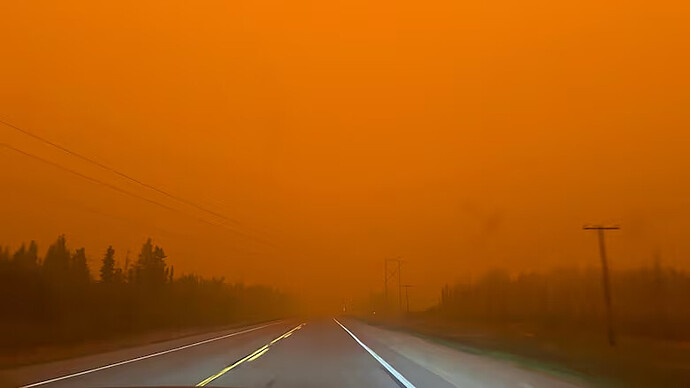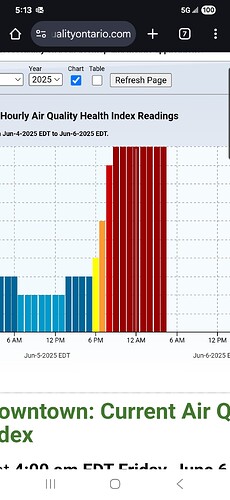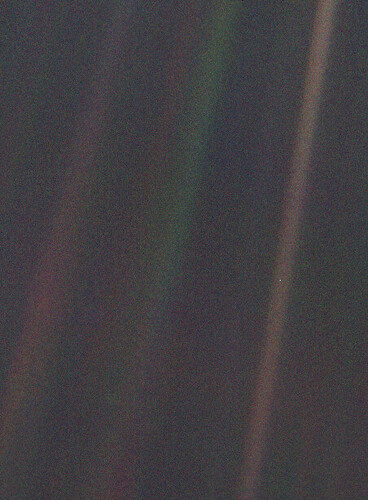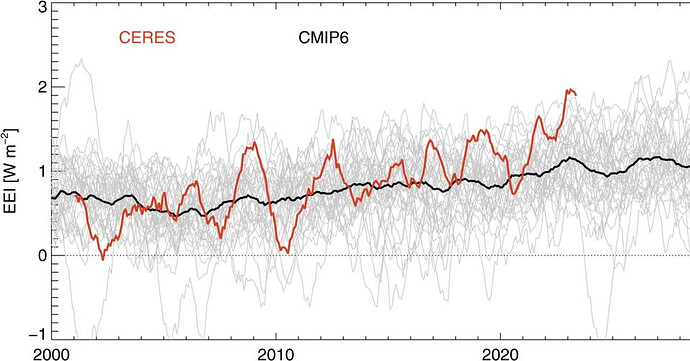Sounds similar to what has been going on with Russian forests. The Northern Hemisphere is heading for a major catastrophe it would seem (which of course will affect the whole planet).
Just a question of time now compounded by denial nut jobs.
First the geese, now the smoke. Ffs
Smoked geese?
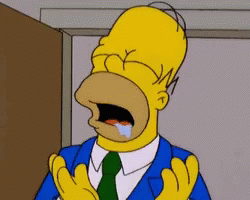
It has reached us, but is too far up in the atmosphere to affect air quality. So we get a chance of seeing a white cloud at worst, or a redish sunset (but we get that anyway where I am at) at best.
Hope you and family is safe. ![]()
Bloody Canadians sending their unwanted smoke to Europe.
If they had towed the line and become the 51st state like Trump wanted we would not be in this mess

We confess to having failed to rake our forests.
Ottawa air quality this morning
A large rainstorm in Northern Ontario was cleaning the air at the critical altitude for a couple of days, but that effect fell away last night
Wow that is pretty bad, @Arminius. Are you and your family personally affected by this?
Yes, that is characteristic of the region. Still nowhere close to as bad as June 2023. That scale hits the top fairly early in the health risk range, but PM2.5 is still only about 20% of what we saw two years ago. Saturday-Sunday look like they will be worse than today.
How is it going now, mate? Better?
Since a few days, it’s impossible to see the alps here. We are plunged into a deep smog, apparently provoked by these fires. There is no blue sky, and the light is strangely yellow/orange. Last night, the moon was a deep-red blurry.
Last time I saw this kind of light, it was in Calcutta, decades ago, because of the smog.
That’s when you come to poignantly realise how the world, while seemingly vast at our human scale, is deeply interconnected. What happens at one end will influence all the rest.
This makes me think of the Pale Blue Dot picture, taken by Voyager 1 from a distance of 3.7 billion miles:
In his 1994 book, Pale Blue Dot, Carl Sagan comments on what he sees as the greater significance of the photograph, writing:
From this distant vantage point, the Earth might not seem of any particular interest. But for us, it’s different. Consider again that dot. That’s here. That’s home. That’s us. On it everyone you love, everyone you know, everyone you ever heard of, every human being who ever was, lived out their lives. The aggregate of our joy and suffering, thousands of confident religions, ideologies, and economic doctrines, every hunter and forager, every hero and coward, every creator and destroyer of civilization, every king and peasant, every young couple in love, every mother and father, hopeful child, inventor and explorer, every teacher of morals, every corrupt politician, every “superstar”, every “supreme leader”, every saint and sinner in the history of our species lived there – on a mote of dust suspended in a sunbeam.
The Earth is a very small stage in a vast cosmic arena. Think of the rivers of blood spilled by all those generals and emperors so that, in glory and triumph, they could become the momentary masters of a fraction of a dot. Think of the endless cruelties visited by the inhabitants of one corner of this pixel on the scarcely distinguishable inhabitants of some other corner, how frequent their misunderstandings, how eager they are to kill one another, how fervent their hatreds.
Our posturings, our imagined self-importance, the delusion that we have some privileged position in the Universe, are challenged by this point of pale light. Our planet is a lonely speck in the great enveloping cosmic dark. In our obscurity, in all this vastness, there is no hint that help will come from elsewhere to save us from ourselves.
The Earth is the only world known so far to harbor life. There is nowhere else, at least in the near future, to which our species could migrate. Visit, yes. Settle, not yet. Like it or not, for the moment the Earth is where we make our stand.
It has been said that astronomy is a humbling and character-building experience. There is perhaps no better demonstration of the folly of human conceits than this distant image of our tiny world. To me, it underscores our responsibility to deal more kindly with one another, and to preserve and cherish the pale blue dot, the only home we’ve ever known.
— Carl Sagan[25]
We had a countercyclical front roll in on Sunday, reversing normal wind directions and bringing cooler/cleaner air from the northeast. We also got rain, which helps enormously. Air quality is now a non-issue. Even better, the same front caused some rain over the fires.
The presence/frequency of that polar vortex is itself a sign of climate change (Gulfstream did not use to weaken that often, which causes that vortex). However, for Europe it does mean that in a couple of days you will see similarly cleaner air.
While the global focus has shifted away from climate change over the last few years, there is increasing evidence that the dominant models have actually understated the sensitivity, and as a result the situation may become more serious much more quickly than anticipated.
CMIP6 (black line) is one of the most commonly used models. CERES (red) is the real data observed
I hate to admit it but maybe that’s what it will take. Then again, with whats hapoenjng in the US it wont make an ounce of difference to policy.
‘Wildly unpopular’: Trump slammed after opening 30% of US National Forest land to logging
Story by Ailia Zehra
The Trump administration announced plans Monday to roll back a conservation rule that has protected nearly 60 million acres of undeveloped national forest land for over 20 years — a decision that has triggered strong opposition from environmental advocates and conservationists.
The proposed changes would pave the way for expanded logging and road construction in some of the country’s most pristine wilderness, The Washington Post reported Monday.
Agriculture Secretary Brooke Rollins revealed that the administration is initiating efforts to repeal protections covering approximately 59 million acres of roadless forest, including a significant portion of Alaska’s Tongass National Forest — a nearly 9-million-acre expanse of old-growth wilderness, per the Post. Rollins made these remarks while speaking before a gathering of Western governors in New Mexico.
Meanwhile, environmental advocates have swiftly denounced the move and vowed legal action against it.
If finalized and upheld in court, the rollback would eliminate safeguards on around 30% of the National Forest System. According to the Agriculture Department, this includes more than 90 percent of Tongass, one of the planet’s largest remaining temperate rainforests.
In a statement highlighted by the Post, the department — home to the U.S. Forest Service — labeled the Roadless Area Conservation Rule “outdated."
The statement went on to say that it “goes against the mandate of the USDA Forest Service to sustain the health, diversity, and productivity of the nation’s forests and grasslands.”
Chris Wood, chief executive of the conservation group Trout Unlimited, told the Post the administration’s decision “feels a little bit like a solution in search of a problem.”
“There are provisions within the roadless rule that allow for wildfire fighting,” Wood said. “My hope is once they go through a rulemaking process, and they see how wildly unpopular and unnecessary this is, common sense will prevail.”
Drew Caputo, vice president of litigation for lands, wildlife and oceans at Earthjustice, told The Post: “The roadless rule has protected 58 million acres of our wildest national forest lands from clear-cutting for more than a generation."
“The Trump administration now wants to throw these forest protections overboard so the timber industry can make huge money from unrestrained logging," he added.
Originally implemented in the late 1990s under former President Bill Clinton, the roadless rule was developed to preserve increasingly rare undeveloped areas in national forests. Environmental groups have long viewed these lands as crucial habitats for wildlife threatened by expanding development and industrial-scale logging operations.
This cunt will create a desert if it means he can get a buck out of it. He’s quite likely to be one of the most singularly responsible persons in history to contribute to the destruction of our habitats. Can’t say I believe Hell exists but for him, I’d make an exception just to know that he’d slow roast in it.
He’d want to buy it and create a beach resort on it.
You just know that he’d be able to make a deal with the devil, and get a climatized tower for himself, while watching other guys roast in the flames of that beach resort, unless they pay him top dollars… ![]()
The avarice and sheer spite of man encapsulated in a story that the billions of people around the world will never hear but is played out on various ways all across the globe along similar lines. On short, an elephant was poached in the Kruger for it’s meat and when they took what they could, poisoned the carcass to kill whatever may scavenge on it after.
Unless we can educate our species more efficiently, we’ll be the guardians of a wasteland sooner rather than later.
